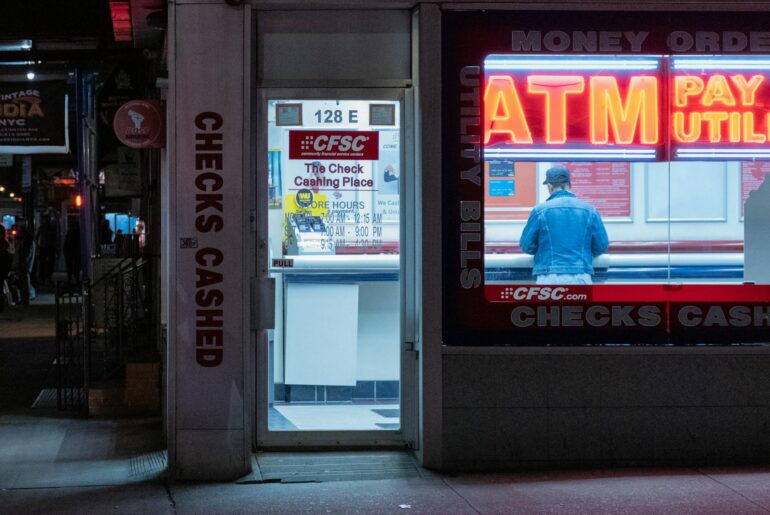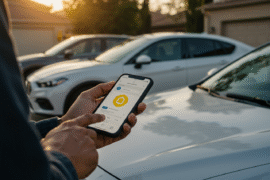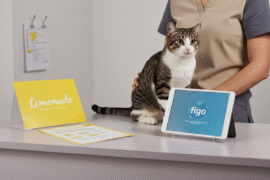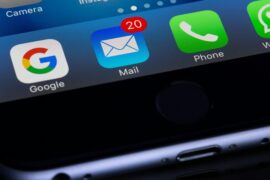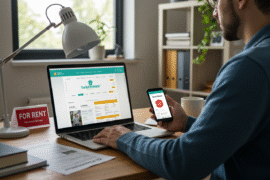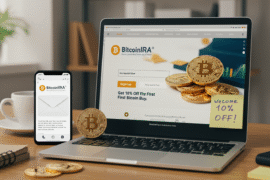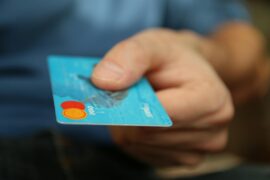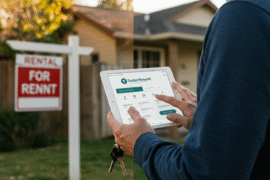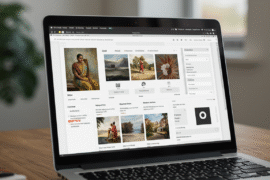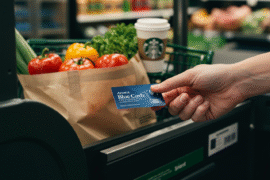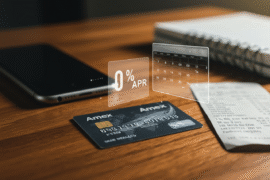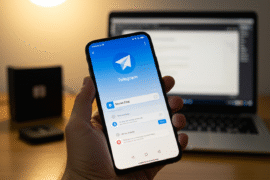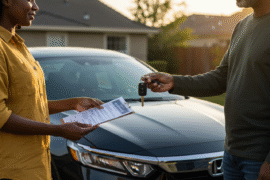This article may contain references to products or services from one or more of our advertisers or partners. We may receive compensation when you click on links to those products or services. Nonetheless, our opinions are our own.
Key Highlights
- Navigating the U.S. banking system as a tourist or non-citizen can be challenging, but it is possible with the right information.
- Eligibility, required documents, and the application process are key to opening a U.S. bank account smoothly.
- A Social Security Number (SSN) is not always necessary; an Individual Taxpayer Identification Number (ITIN) may suffice.
- Many banks, especially in larger cities, cater to non-residents and tourists, and online banking can simplify the process.
- Understanding fees, exploring international money management options, and utilizing customer support can help you manage your account effectively.
Introduction
Did you know that many U.S. banks allow tourists and non-citizens to open accounts? For visitors or new residents, opening a U.S. bank account provides financial security, simplifies transactions, and helps avoid costly foreign exchange fees. While the process may seem complicated, it becomes straightforward with the right guidance. This article explains how non-citizens can open and manage a U.S. bank account, covering eligibility, documents, and practical tips to make banking easier.
Understanding U.S. Banking for Non-Citizens
The U.S. banking system is distinct from those in many other countries, with specific requirements for non-citizens. While not all banks cater to tourists or non-residents, many offer options tailored for them, especially in major cities and tourist hubs.
Why Consider Opening a Bank Account in the US?
A U.S. bank account provides several advantages for non-citizens:
- Simplified Transactions: Pay bills, receive direct deposits, and avoid high foreign transaction fees.
- Enhanced Security: U.S. banks offer FDIC-insured accounts, protecting deposits up to $250,000.
- Convenience for Long Stays: Access local banking services and avoid the hassle of currency exchange.
Whether for short-term travel or extended stays, having a U.S. bank account can make financial management significantly easier.
Common Challenges for Non-Citizens and Tourists
Opening a U.S. bank account as a non-citizen comes with challenges:
- Social Security Number (SSN): While some banks require an SSN, others accept an ITIN or alternate identification.
- Proof of Address: Providing a U.S. address may be difficult for tourists. Some banks accept letters from employers or schools as proof.
- Language Barriers: Most banks primarily use English, but some offer translation services. Verify this with your chosen bank before visiting.
Eligibility Criteria for Non-Citizens
To open a bank account in the U.S., non-citizens must meet certain requirements, which vary by bank and account type. Here are the basic criteria:
- Valid Identification: Most banks require a passport, visa, or other government-issued ID.
- Proof of Address: Utility bills, lease agreements, or official letters from employers or schools are commonly accepted.
- ITIN or Tax Documentation: While not always mandatory, an ITIN can be helpful, especially for long-term stays.
Special Considerations Based on Visa Types
Different visa types may affect your eligibility and account options:
- Tourists (B-2) and Students (F-1): Often required to provide proof of a short-term U.S. address.
- Work Visa Holders (H-1B, L-1): May access more banking services, including loans and credit cards, due to their longer-term residency.
- Permanent Residents (Green Card Holders): Typically face fewer restrictions and enjoy the same banking privileges as U.S. citizens.
Preparing to Open a Bank Account
Proper preparation can save time and make the process smoother.
Essential Documents and Information Needed
- Identification: Passport with a valid U.S. visa, Green Card (if applicable), or another government-issued ID.
- Proof of Address: Utility bills, bank statements, or employer/university letters.
- Additional ID (if required): A driver’s license or consular ID may be accepted.
- Initial Deposit: The required deposit amount varies by bank and account type (typically $25–$500).
Deciding Between Online and Physical Banking
Traditional Banks: Offer in-person services and numerous ATMs but may charge higher fees.
Online Banks: Provide lower fees and higher savings rates, with the convenience of 24/7 access. However, they lack face-to-face service.
Recommendation: Choose based on your needs, such as international money transfers or in-person support.
Step-by-Step Guide to Opening a Bank Account
Step 1: Research and Select a Bank
- Consider large national banks (e.g., Chase, Bank of America) or regional banks that are known for accommodating non-citizens.
- Evaluate account features, fees, and customer reviews.
Step 2: Gather Required Documentation
- Ensure you have all required documents, including proof of identity and address.
- Confirm with your chosen bank if additional items are needed.
Step 3: Complete the Application Process
- Online Application: Fill out forms digitally and upload documents.
- In-Person Application: Visit a branch, where staff will guide you through the process.
Step 4: Make an Initial Deposit
- Deposit funds using cash, checks, or wire transfers to activate your account.
- Verify the minimum deposit requirements with your bank.
Managing Your New U.S. Bank Account
Key Tips for Account Management
- Monitor transactions regularly to detect unusual activity.
- Enable two-factor authentication for added security.
- Set up online and mobile banking to simplify account management.
- Familiarize yourself with customer support options for assistance.
Understanding Fees and Charges
- Monthly Maintenance Fees: Often waived by maintaining a minimum balance or setting up direct deposits.
- Foreign Transaction Fees: Charged for purchases or ATM withdrawals in foreign currencies.
- Overdraft Fees: Avoid exceeding your balance to prevent additional charges.
Tips for International Money Management
- Compare exchange rates before transferring funds.
- Consider multi-currency accounts for frequent international transactions.
- Use online transfer services like Wise or PayPal for smaller transfers to reduce fees.
Conclusion
Opening a U.S. bank account as a non-citizen is achievable with the right preparation. Start by researching banks that accommodate non-residents, gathering the necessary documents, and completing the application process. Once your account is active, focus on managing it effectively by understanding fees and utilizing online banking tools. Whether you choose traditional or online banks, this guide equips you to navigate U.S. banking confidently.
Frequently Asked Questions
Can I open a bank account in the US with just a tourist visa?
Yes, some banks allow tourists to open accounts with appropriate identification and proof of address. Check individual bank requirements beforehand.
An SSN is not always required. Many banks accept an ITIN or alternate identification for non-citizens.
What is the minimum deposit required to open a bank account?
Minimum deposits vary by bank and account type, typically ranging from $25 to $500.
How long does it take to open a bank account for non-citizens?
The process usually takes a few days to a week, depending on the bank and whether you apply online or in person.
Can I manage my U.S. bank account from abroad?
Yes, most U.S. banks offer online and mobile banking services, enabling you to access your account from anywhere.

Reviewed and edited by Albert Fang.
See a typo or want to suggest an edit/revision to the content? Use the contact us form to provide feedback.
At FangWallet, we value editorial integrity and open collaboration in curating quality content for readers to enjoy. Much appreciated for the assist.
Did you like our article and find it insightful? We encourage sharing the article link with family and friends to benefit as well - better yet, sharing on social media. Thank you for the support! 🍉
Article Title: Can a Tourist Open a Bank Account in US: A Guide to Navigating U.S. Banking as a Non-Citizen
https://fangwallet.com/2025/02/20/can-a-tourist-open-a-bank-account-in-us/The FangWallet Promise
FangWallet is an editorially independent resource - founded on breaking down challenging financial concepts for anyone to understand since 2014. While we adhere to editorial integrity, note that this post may contain references to products from our partners.
The FangWallet promise is always to have your best interest in mind and be transparent and honest about the financial picture.
Become an Insider

Subscribe to get a free daily budget planner printable to help get your money on track!
Make passive money the right way. No spam.
Editorial Disclaimer: The editorial content on this page is not provided by any of the companies mentioned. The opinions expressed here are the author's alone.
The content of this website is for informational purposes only and does not represent investment advice, or an offer or solicitation to buy or sell any security, investment, or product. Investors are encouraged to do their own due diligence, and, if necessary, consult professional advising before making any investment decisions. Investing involves a high degree of risk, and financial losses may occur including the potential loss of principal.
Source Citation References:
+ Inspo
